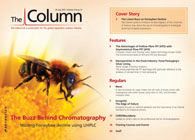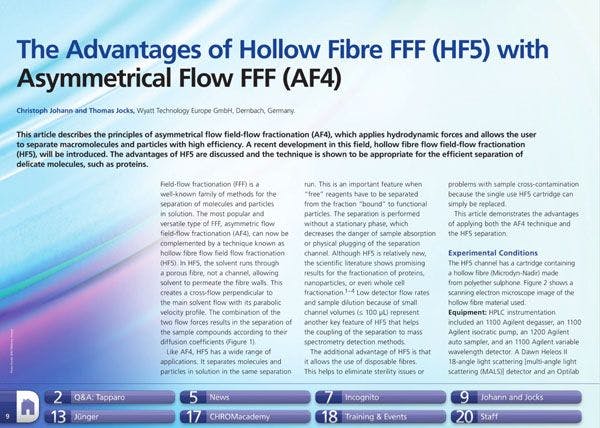Cell division snapshot
A cell cycle clock consisting of four continuous stages governs cell division (and replication), with each stage controlled by a specific series of protein complexes. Cancer is characterized by the uncontrolled division of cells that have gained genetic mutations that allow them to overcome these controls, therefore resulting in their self-sufficiency.
A cell cycle clock consisting of four continuous stages governs celldivision (and replication), with each stage controlled by a specific seriesof protein complexes. Cancer is characterized by the uncontrolleddivision of cells that have gained genetic mutations that allow them toovercome these controls, therefore resulting in their self-sufficiency.
Scientists from Virginia Polytechnic Institute and State University(Virginia, USA) took a snapshot of a key transition point, the G1/S phase,in the breast cancer cell cycle by performing LC–MS–MS proteomeanalysis on nuclear and cytoplasmic cell fractions. The group positivelyidentified >2700 proteins from the analysis. Subsequent pathwaymapping, functional annotation clustering, and protein interactionnetwork analysis indicated that top scoring protein clusters could have arole in overriding the check-point.
Corresponding author Iuliana Lazar told The Column that at the proteomic level, the data reveals for the first time new relationships between different protein networks that have an essential role in variousbiological processes such as trancription activation and repression,signalling, and cell-cycle control.
Lazar added: “By providing novel insights into the functionalcategories that drive cancer cells into division, the data points to a broadrange of potential therapeutic targets that concurrently affect the cellcycle signalling and transcriptional/translational machinery.”
Reference
1. M.J. Tenga and Iuliana M. Lazar, Proteomics13(1), 48–60 (2013).
This story originally appeared in The Column. Click here to view that issue.
Regulatory Deadlines and Supply Chain Challenges Take Center Stage in Nitrosamine Discussion
April 10th 2025During an LCGC International peer exchange, Aloka Srinivasan, Mayank Bhanti, and Amber Burch discussed the regulatory deadlines and supply chain challenges that come with nitrosamine analysis.










